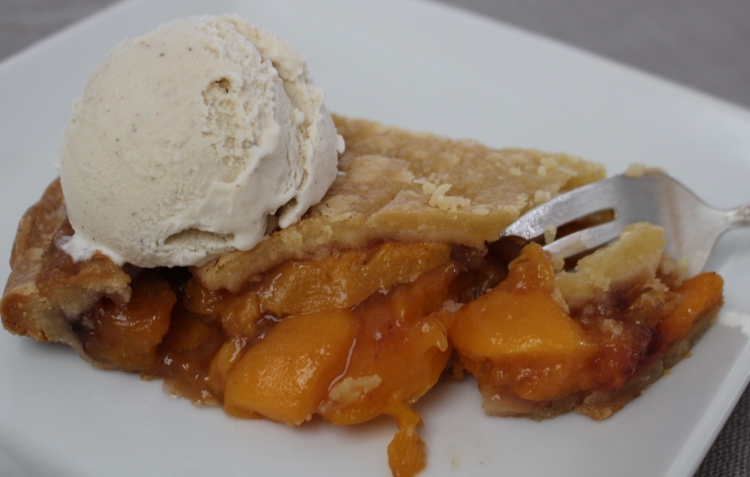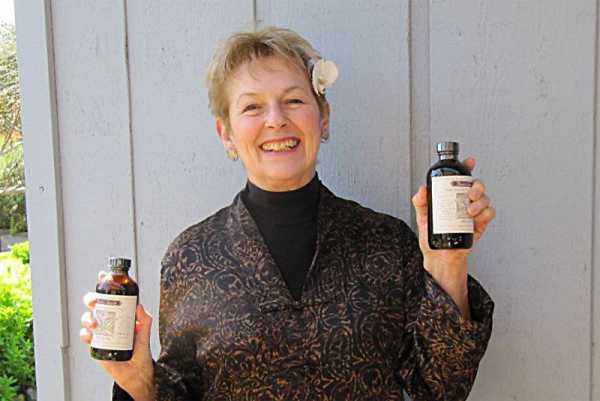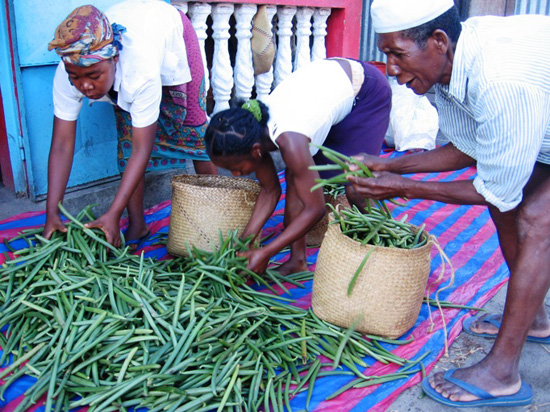
I'm amazed at how superior your vanilla is!
– Des, The Grommet
We have been contacted by customers asking about the strong smell of alcohol in our pure vanilla extracts. So we thought we’d address this question.
There are good reasons and a simple fix for this.
The FDA Standard of Identity for pure vanilla extracts requires that there must be a minimum of 35% alcohol in pure vanilla extract. The alcohol may be made with grain alcohol or sugarcane alcohol. In the case of our vanilla extracts, we use sugarcane alcohol because it is both GMO-free and gluten-free.
Most extract companies include sugar or corn syrup and caramel color in their blends. All three of these are sugars; the caramel color also darkens the color of the extract. While these should be mentioned on the labels, they usually aren’t. Added sugars vary in volume depending on the company.
Sweeteners, especially sugar and corn syrup, help to soften the smell of the alcohol. They also assist in starting the aging process.
Here at the Vanilla Company, we do not use sugar in our Rain’s Choice extracts as many customers want sugar-free extracts.
Because vanilla bean prices have been unusually high for several years, most companies purchase vanilla beans in small volume. Instead of buying in tons, they’re buying in kilos.
Why?
First, the cost; secondly, prices are bound to drop and no one wants to be sitting on vanilla beans that are suddenly worth far less than they cost when purchased.
As a result, extracts are currently made in small volume and shipped before they’ve had time to age. This means the extracts have had no time to start the aging process and become more mellow unless they contain sugar or corn syrup!
If you are accustomed to purchasing vanilla in Mexico, you may be surprised to learn that there is no comparison between so-called Mexican extracts and the pure vanilla extract you’ll find in the U.S.
This is because Mexican vanilla is not pure vanilla. It’s 100% imitation. Why is that?
Mexico no longer has enough vanilla beans to make extracts due to the changing climate. Further, even when they did, most Mexicans couldn’t afford the high cost of pure vanilla. Mexico began producing imitation vanilla in 1893, and has done so ever since. It’s cheap, it smells good, and tourists and locals like it!
Because it’s imitation, Mexican vanilla doesn’t need alcohol for the aging process, and so it has, at most, only 2% alcohol used solely as a preservative. In addition, it is made from chemical vanillin and may contain red dyes banned in the U.S.
So not only does Mexican vanilla not have the smell of alcohol, it is very different from pure vanilla extract in other ways as well. Good news is you don’t have to sacrifice purity to get an alcohol-aroma free vanilla. Read on.
We sell only pure vanilla here at the Vanilla Company, and we also buy our beans in small quantity, so it shouldn’t be surprising that the smell of alcohol accompanies our extracts. But there is a way to eliminate that aroma.
It’s simple. Just add sugar.
For 1 pint of extract, add up to a tablespoon of cane sugar; for a quart, add 2 tablespoons. This will soften the harsh smell of alcohol and initiate the aging process. This comes out to about 3% sugar in the extract.
Within a week or two your extract will smell far more mellow.
Vanilla extracts have no expiration date thanks to the high alcohol content.
Extracts are similar to liquor, given they are at least 70 proof. Because of that, vanilla will age for two years or longer. Then it stabilizes, and will remain flavorful for a long time if stored in a cool, dark cupboard.
So next time you’re met with the aroma of alcohol when you open one of our bottles of extract, you can add a small amount of sugar, and know that your investment in pure vanilla will not expire before you use it up.
I was given a small bottle of Rain’s Choice in a gift basket and I have been hooked ever since. The flavor makes all of my baking so much better! I will never use grocery store vanilla again!


© 2021. All Rights Reserved
Designed/Developed by Kat & Mouse
8 Responses
Is it necessary to add the sugar before it’s ready to use?
There is no need to add sugar to our extracts. The Standard of Identity for pure vanilla extracts call for Vanilla Bean Extractives, Alcohol and Distilled Water. Most companies add sugar or corn syrup and caramel color to soften the harsh nose of alcohol and give it more color. We don’t use any sweeteners as many of our customers prefer not to have added sugar. Vanilla will age on its own without sugar. We make the suggestion for those who don’t understand why the alcohol smell is so strong. So you may add it or skip it.
Sugar (to diminish alcohol smell)…or not…got it. Since it seems extract develops/ages over two years before ‘stabilizing’, will buying a bottle and letting it sit for 6-12 months also diminish alcohol smell? More importantly, does letting your extract sit for a year or two before using add to a better taste? Thx.
Dave, the vanilla will be much milder within a month or so. One of the details most people don’t understand is that vanilla should be smelled in the same way wine or spirits are smelled, by moving the bottle back and forth under the nose rather than taking a deep whiff. While vanilla will age well on its own, adding the sugar helps to speed up the aging process. It isn’t necessary to add the sugar, but it helps to cut the strong alcohol aroma. After a few months, the aging is more subtle. While a good Scotch or Bourbon or aged rum definitely improves flavor over time, you’re not drinking the vanilla (or at least I presume). The best part is there is no expiration date on vanilla, so enjoy it at whatever pace you choose.
Good article, but it would be nice if you mentioned the “taste” of alcohol in the vanilla. I taste vanilla before I put it into my baking. It tastes like everclear. Its hard to believe that adding strong alcohol to my edibles is going to make them taste ok. Will the more expensive boozy real vanilla give my food a good vanilla flavor and not wreck it with an alcohol flavor? So does “aging” it get rid of that awful alcohol? I want real vanilla and so I don’t use imitation, but its funny that when I taste the fake vanilla, it tastes watery and slightly vanilla but without that awful alcohol.
Mark, it is impossible NOT to notice the taste of alcohol, just as you “taste” the alcohol in alcoholic beverages. The Standard of Identity for making pure vanilla extract is 35% alcohol. All pure extracts are required by law to have alcohol in the U.S. Some extracts are made with grain alcohol and some are made with sugarcane alcohol. Most companies add sugar or corn syrup, and caramel color, which is also a sugar as well as a colorant. We don’t use sugar, corn syrup or caramel color in our extracts as many people prefer them without. Yes, aging softens the alcohol taste significantly as does sugar or corn syrup. The issue is the price for vanilla beans is historically high. As a result, bean importers are purchasing in smaller volume as we know that at some point the prices will collapse. No one wants to be stuck with a ton of vanilla beans they paid $350 a kilo for before paying shipping, airport fees, customs fees, agent’s fees and storage fees, only to have it worth $50 a kilo three months later. Given that there is greater demand for many products — vanilla included — given people are mostly cooking at home at this time, demand is greater than supply and vanilla is shipping without sitting for six months in a warehouse.
I did a test in June. I added 1 tablespoon of brown sugar to 16 ounces of extract, shook it every few days, and allowed it to rest. Within three weeks the fragrance become more distinct. By six weeks the alcohol smell and taste had softened considerably. By 10 weeks it was really mellow. Much of the alcohol will cook or bake out but there will be some residual taste until the extract has had some time to age. The best thing to do if you want to avoid the smell or taste of alcohol in vanilla, is to purchase a new bottle before you are finished with the older bottle and allow the new bottle to rest and age. While it isn’t critical to add sugar, it will help speed up the aging process.
Could I put a small amount of unsulfered molasses in the vanilla to tone down the alcohol? OR even REAL maple syrup?
Julia, unsulfured molasses or Piloncillo, the raw sugar cones found in Mexican bodegas are actually very good, as molasses adds a really nice note to vanilla. So does organic sugar as it isn’t as refined as granulated sugar. Maple syrup would be fine as well, though personally, I’d save it for sweetening yogurt given it’s expensive and the flavor is so soothing and delicious. The bottom line is it’s your choice and there aren’t any wrong answers.
Patricia